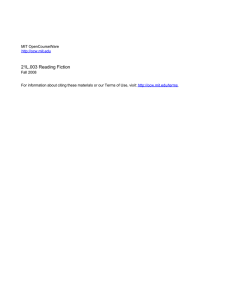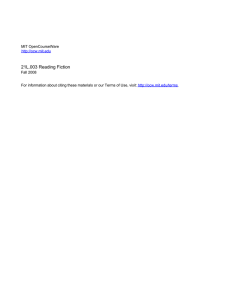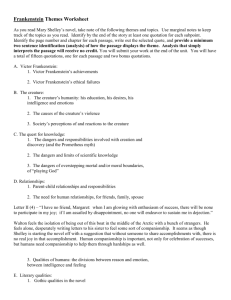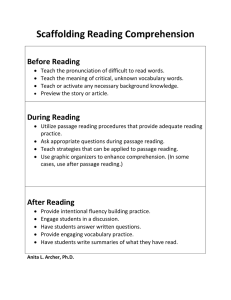21L.003 Reading Fiction MIT OpenCourseWare . t:
advertisement
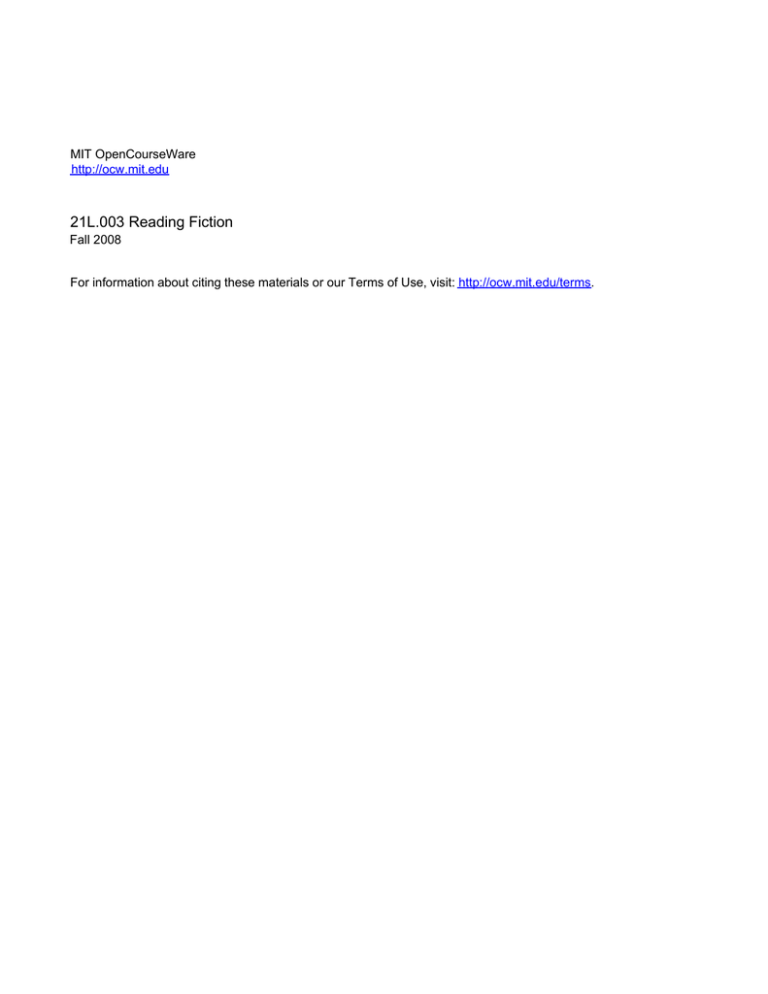
MIT OpenCourseWare http://ocw.mit.edu 21L.003 Reading Fiction Fall 2008 For information about citing these materials or our Terms of Use, visit: http://ocw.mit.edu/terms. 21L.003 Reading Fiction Vaeth Paper #3 (5 pp; due SES #21 in class) In selecting a passage, you can choose to consider one of the following themes: the implications of the first or last speeches of the Creature or Victor Frankenstein; the implications of isolation for the Creature or Victor Frankenstein; the implications of language and communication on character; the implications of knowledge for Victor, Walton, or the Creature. Of course, you can select any passage that delights and intrigues you in order to write a passionate essay. 1. Following the model of the oral presentation, select a passage from the text (choose a different passage to consider should you write a paper on the same text that you are presenting on). Each paper will be grounded in an analysis of that work through a close reading of one specific passage that leads you to larger considerations of that work as a whole. Trust the approach of many readings and making plentiful observations as an invaluable endeavor for the work of the paper; giving yourself time to internalize the novel so that you can then speak its language with authority is the goal of our work this semester. You want to move from making public observations and making inferences to expressing ideas of your own. It is important to remember that it is YOUR idea about a work that deserves expression and development; you are not obligated to explain the writer’s idea or Tolstoy’s idea but you are responsible for explicating YOUR idea about Shelley or O’Conner. One of the goals of an academic paper is to persuade an audience of readers (your classmates) to see your point of view. Certainly, you can think of this endeavor as making a kind of argument. There is no more authoritative persuasion than one that is thoroughly grounded in the text itself. As with the oral presentation, limit your scope by choosing a short passage of approximately a half page (or less) that holds some charge or question for you and that you think will sustain further consideration. What do you think the passage signals about character, actions, setting, the writer’s use of language (style, vocabulary, images, patterns of syntax, grammatical marks – any given passage will have much to discover)? In your paper, speak the language of this passage – think of it as your essential evidence and authority to make others see and understand your idea. 2. What is a monster? Define what is “monstrous” about Mary Shelley’s monster; or consider how the Creature “reads” literary texts to develop a sense of self. Is he essentially “human”? Or “monstrous”? Define the difference and consider his “literacy.” 3. How does the narration of Shelley’s novel affect its meaning for readers? Consider the use of letters, particularly Walton’s, and storytelling as determiners of point of view. How does the narration of the novel determine our knowledge of the characters; how does narration matter to reader’s understanding?
